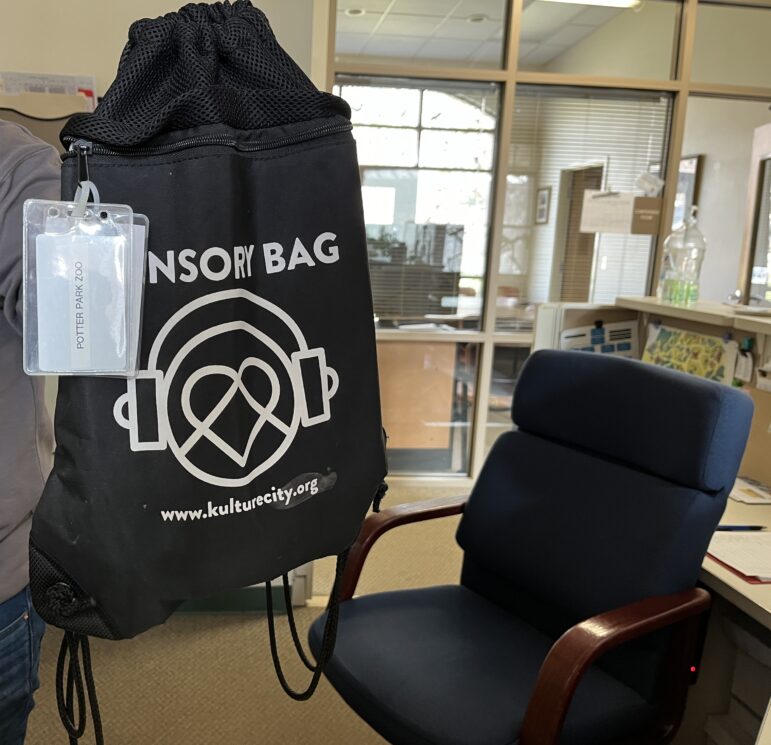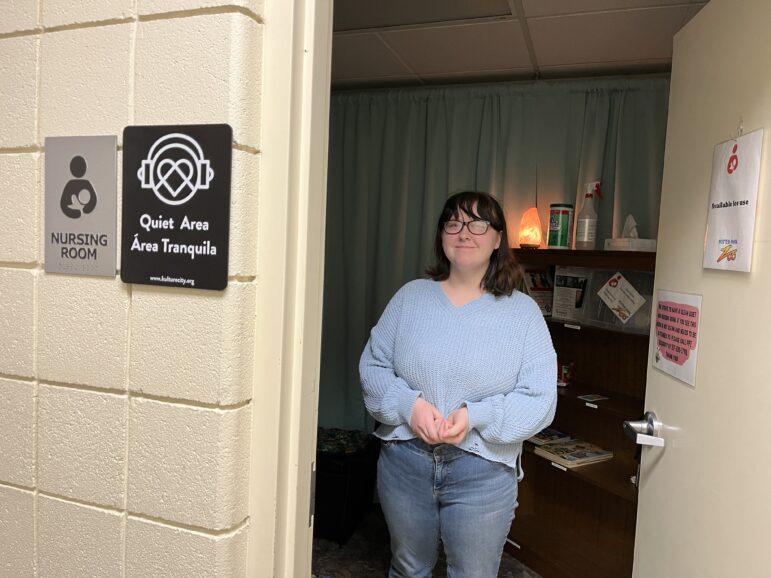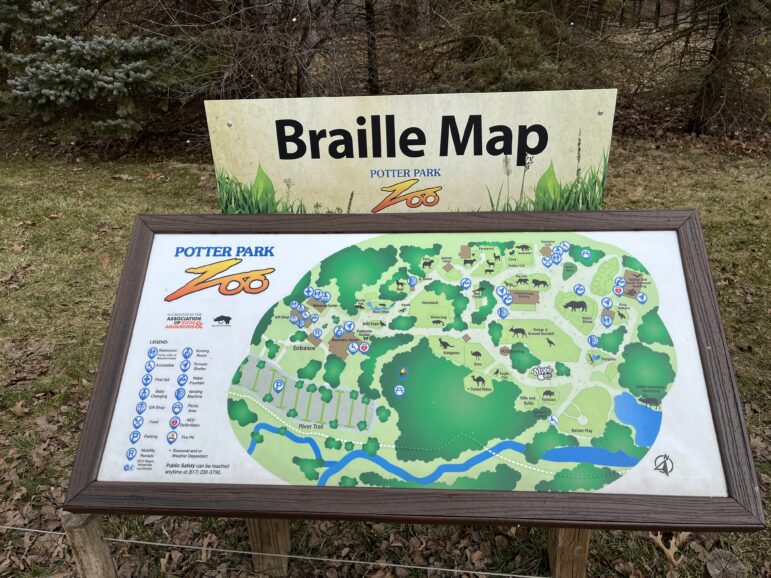LANSING, Mich.—Potter Park Zoo, which is managed by Ingham County, has been paving the way for greater accessibility features for establishments and fostering an inclusive environment.
Located right between Downtown Lansing and East Lansing, the zoo has continuously been establishing programs and amenities that benefit anyone with any type of disability to take advantage of in order to experience the zoo at its fullest potential.
Mariah Martinez, the Equity and Engagement Program manager at Potter Park Zoo, explained that accessibility extends further than mobility and is important to consider the comfort of everyone who utilizes the zoo.
“When looking at accessibility, you’re not just looking at a specific person. You’re not looking at specific disability, whether it’s developmental, or mobility or mental,” Martinez said. “It is literally just being an open place for everyone. Sometimes accessibility is overlooked, especially in the world of diversity, equity and inclusion.”
According to Bill Hundt, a front desk receptionist at Disability Network Capital Area, Lansing has been playing a large role in expanding accessibility in Michigan by providing resources for people with disabilities to use.
“We have places such as ours, you know, [a] disability network, and teams of other resources in Lansing,” Hundt said. “So if people reach out and know where to go, we can make things happen together. Sometimes, it doesn’t even take a vote to get people going in the right direction.”
Potter Park Zoo became the first zoo in Michigan to be accredited by the American Zoo Association (AZA) as a Certified Sensory Inclusive Zoo in 2019. Through KultureCity, a company specializing in sensory-inclusive amenities and training, Potter Park Zoo was able to become certified and widen its atmosphere of inclusivity and accessibility.
“It provides you kind of an understanding of those with autism, or those with a developmental disability, even PTSD, dementia, an array of things, and they listen to the training and they take a quiz every single year,” Martinez said.
The zoo offers many of these amenities to accomplish its mission of “creating an inclusive, equitable, and accessible environment for our employees, volunteers and community.” These amenities range from mobility assistance, including wheelchairs and motor carts, to sensory bags filled with items to help those who experience sensory overload. In addition, there are also amenities for the visually impaired, such as braille maps and booklets. Quiet rooms and areas are scattered around the zoo for those who want a moment of silence, or for nursing mothers needing a private room. The zoo also allows service animals to enter alongside their owners.

Furthermore, Martinez said that the most recently added feature is audio tours.
“We have an audio tour of our reptile [and] small mammal house. This allows [for] those that are visually impaired to utilize that building and know what’s at each exhibit,” Martinez said. “We just kind of go over the signage [and] give them a description of the animal that is in front of them, giving them that same experience that someone else is having, [which is] really important.”
Eaton Rapids resident Sara Cary, a student who was visiting the zoo for a school assignment, has used the zoo’s quiet room several times during her visits.
“They help a lot of people, and the quiet room [helps] when you have a migraine from a long day of school,” Cary said.

Nick Bradley, an Ingham County Public Safety representative, said that the staff members take pride in the accessibility of their environment and especially stand out through listening to suggestions the guests recommend.
“We have questionnaires posted all over the place, [and] signs when you’re leaving that say, ‘Leave any feedback that you want,’” Bradley said. “That’s just what really sets us apart because we’re willing to take any suggestions that people have, no matter how small or big.”
“We’re always trying to think of new ways to help, so no one is left out from being able to experience the zoo,” Bradley said.

In addition, the zoo’s FALCONERS program creates specific days for special needs visitors only, so they can enjoy the zoo in a safe environment. The FALCONERS program allows one day per month where children and adults with any disability, along with their family members, are invited to the zoo to explore and learn in a safe and welcoming environment. These monthly events are free to the public and are sensory-friendly. The next upcoming event will be held in March.
Martinez said that the first step to promote inclusion in a location is to be transparent and to have trained staff on site who understand disability awareness.
“All of our staff are trained with, you know, helping those with sensory overload and autism and they understand disability awareness, so our staff isn’t taken back if something occurs, they’re prepared and they’re trained,” Martinez said.
Cary feels as though other local businesses should follow in their footsteps to become more accessible to everyone.
“It’s not that hard to accommodate the sensory needs for, like, special needs people,” Cary said. “I feel like more people should do it.”
To learn more about the accessibility features Potter Park Zoo offers, visit the zoo website.
